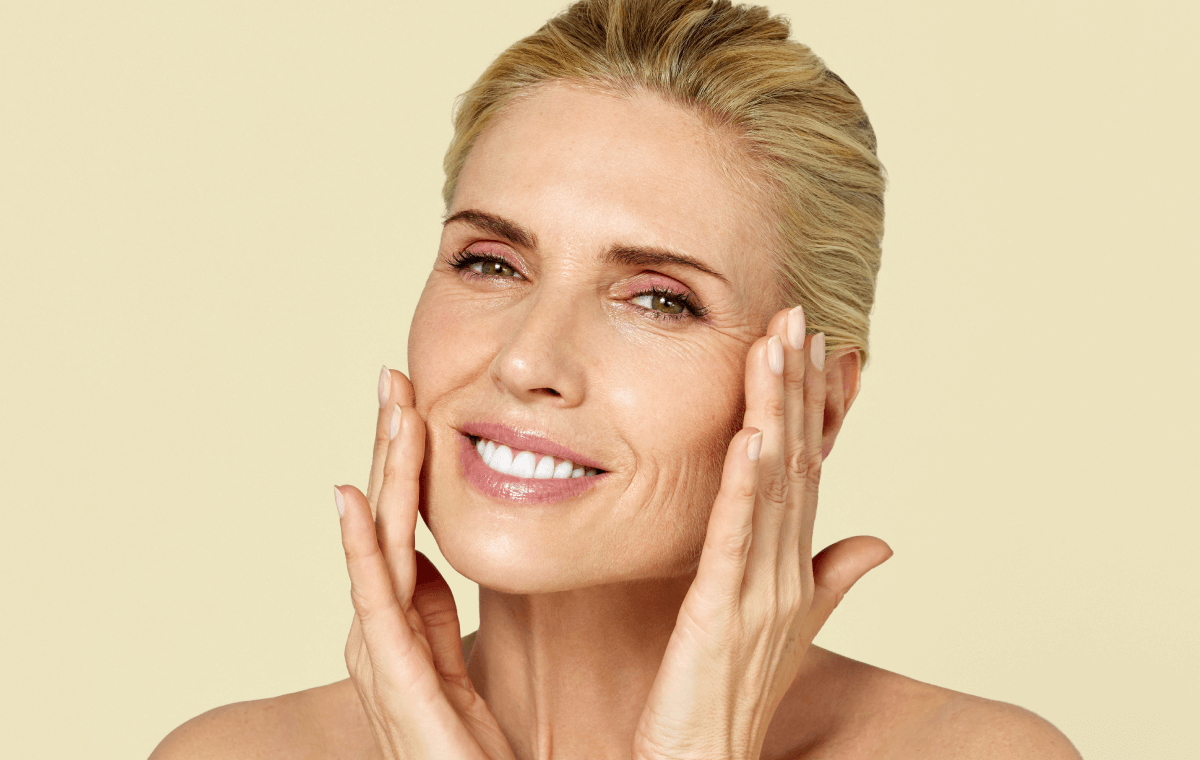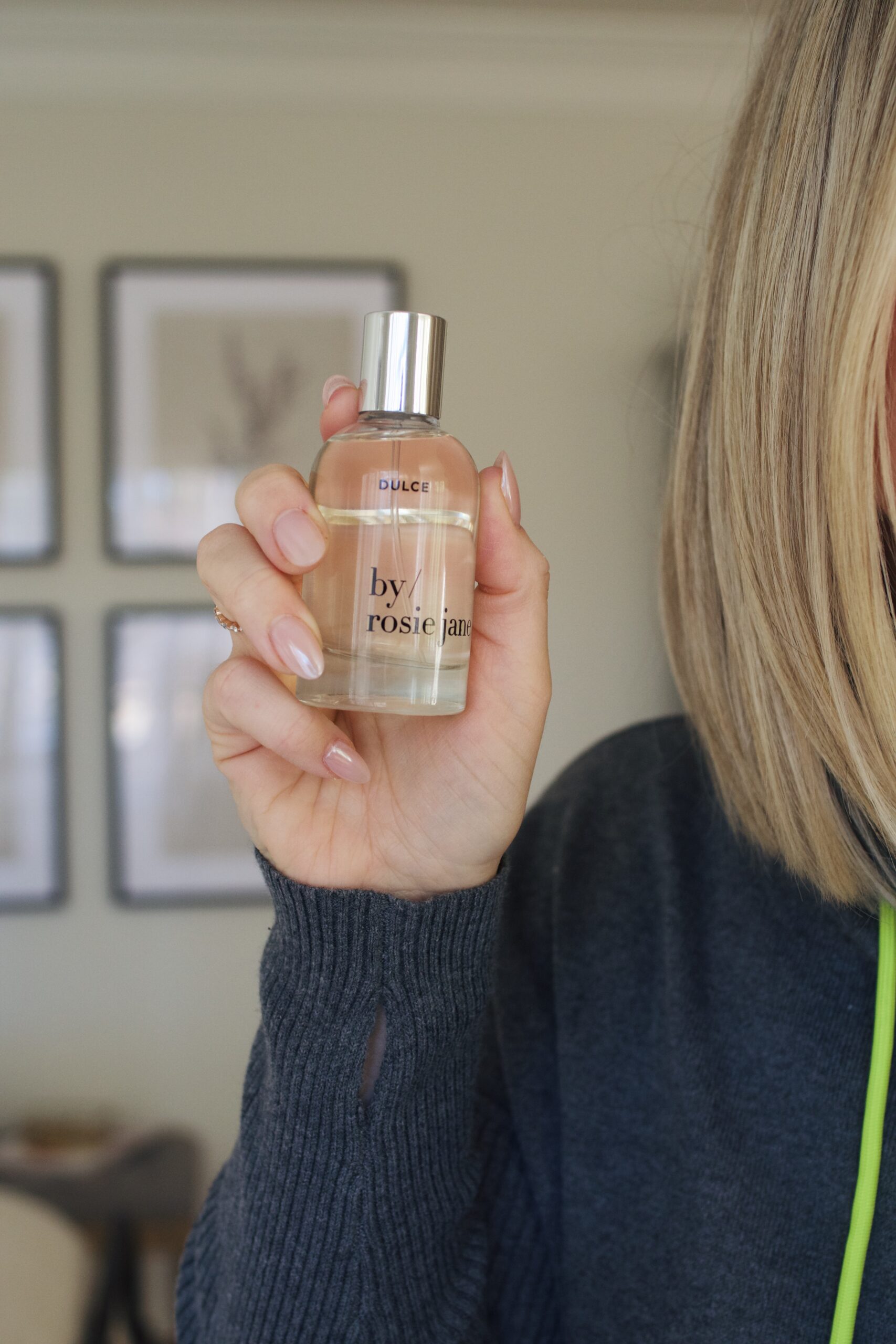
Reading: 4 minutes
Sometimes a new skincare ingredient steals the scene, and then quickly fades out. But, if you’ve noticed bakuchiol popping up in your newsfeeds or inbox lately, take note. This renewing ingredient has got staying power.
The gentle, plant-based retinol alternative is making waves in age-defying favorites around the world. So, it’s natural to get curious about the use of bakuchiol vs. retinol in your daily routine.
Let’s discuss bakuchiol, how it stacks up against retinol, and how both can get you glowing.
What is bakuchiol?
Bakuchiol (say it with us: buh-koo-chee-all) extract is naturally derived from the seeds of the Psoralea corylifolia, more commonly known as the babchi plant.
Rooted in traditional Eastern medicine and touted for its healing properties for centuries, it’s recently gone mainstream in skincare via restorative facial serums. And luckily for our friends with sensitive skin, it’s now widely considered a gentle, plant-based retinol alternative.
How does bakuchiol work?
Bakuchiol contributes its rejuvenating properties to its sway with your body’s natural regenerative processes. By helping to accelerate skin turnover, it promotes a fresh and smooth complexion.
The appearance of skin aging is heavily affected by oxidative stress on the skin, especially from external environmental factors (think sun exposure). Bakuchiol helps to charge up your skin’s resistance to these stressors. This noteworthy ingredient also helps restore elasticity and firmness — making it a great addition to a mature skincare routine.
Bakuchiol helps to accelerate skin turnover, promoting a fresh and smooth complexion.
Benefits of bakuchiol
This retinol-like essential helps to:
Improve skin turnover: Helps to combat the visible signs of aging and refine skin texture.
Reduce the appearance of fine lines: Supports skin processes to boost elasticity and firmness, while combating the appearance of wrinkles.
Even skin tone: Gives skin a healthy glow and helps to fight uneven pigmentation.
What is retinol?
First up, this world-famous ingredient is a type of retinoid. Retinoids are derivatives of vitamin A — one of the main vitamins that helps uplift your skin’s turnover. Praised for its skin-renewing properties, retinol helps to tackle the visible effects of photoaging, AKA aging effects caused by the sun.
But balance is crucial when introducing retinoids into your routine. They can be irritating if used in high concentrations, on sensitive skin, or incorrectly. So, it’s best to start slowly and work your way up.
What’s the difference between retinol, retinal, and retinoids? Discover the ultimate guide.
Bakuchiol vs. retinol: is bakuchiol better?
The positive spin on bakuchiol is its potential for retinol-like results with fewer harsh effects. But you don’t necessarily have to choose! Try combining bakuchiol and retinoids to address fine lines, wrinkles, and other texture concerns.
However, there are two instances where bakuchiol might be a better choice for you than retinoids:
You’re extremely sun sensitive. Skin photosensitivity is one drawback well-known to retinoid enthusiasts.
You’ve had an uncomfortable reaction to retinoids in the past.
So, if your skin can’t tolerate retinol, take a bakuchiol serum on a test run. And, of course, remember to apply (and reapply) sunscreen daily, no matter your pick.
Expert advice: Mix and match! Since the structure of retinoids and bakuchiol differ, your skin can benefit from adding both to your routine.
Try combining bakuchiol and retinoids to address fine lines, wrinkles, and other texture concerns.
How to use bakuchiol in your skincare routine
While there’s no issue with using bakuchiol in the AM (before applying your sunscreen), nighttime is ideal. Why? Your skin works to naturally repair itself overnight.
This restorative power makes your evening skincare routine the optimal time for rejuvenating ingredients. And serums are the perfect option to deliver these hard-working elements in a straightforward format.
Discover both of our nighttime serums featuring bakuchiol:
Melatonik®️ This 3-in-1 serum containing bakuchiol, melatonin, and vitamin C boosts natural antioxidant defenses and helps to restore vitality and elasticity, for radiant, healthy skin.
If you’re not keen on retinoids, this is the choice for you.
Retinal Advanced This youth-boosting night serum helps visibly reduce wrinkles and fine lines. It combines retinaldehyde, melatonin, and bakuchiol with Soothing Complex using an innovative dual-phase technology.
If you’re ready to combine bakuchiol with the power of retinoids, look no further.
Expert advice: Not all bakuchiol products are created equal. Make sure to choose a gentle, restorative formula that’s suitable for your skin type. Double-check that it’s non-comedogenic, meaning it’ll get the job done without clogging pores.
Remember, bakuchiol vs. retinol doesn’t have to be either or – these two age-defying skincare ingredients can be partners after all. Choose one, the other, or both, and enjoy glowing skin!
And above all, love your skin, care for it, and protect it, always.
References:(1)Dhaliwal, S., Rybak, I., Ellis, S. R., Notay, M., Trivedi, M., Burney, W., Vaughn, A. R., Nguyen, M., Reiter, P., Bosanac, S., Yan, H., Foolad, N., & Sivamani, R. K. (2018). Prospective, randomized, double‐blind assessment of topical bakuchiol and retinol for facial photoageing. In British Journal of Dermatology (Vol. 180, Issue 2, pp. 289–296). Wiley.(2)Hemali Gunt, Zoe Diana Draelos, Stanley B. Levy, 16091 Topical effects of a natural retinol alternative: A clinical assessment of bakuchiol on sensitive skin,
Journal of the American Academy of Dermatology, Volume 83, Issue 6, Supplement, 2020, Page AB171, ISSN 0190-9622.Michael, S. (2019, February 15). Everything you need to know about Bakuchiol, the buzzy ingredient that’s being compared to Retinol | CBC Life. CBCnews. Retrieved October 25, 2021.Chaudhuri, R.K. and Bojanowski, K. (2014), Bakuchiol: a retinol-like functional compound revealed by gene expression profiling and clinically proven to have anti-aging effects. Int J Cosmet Sci, 36: 221-230.Valenti, L. (2018, July 12). A beginner’s guide to retinol: Here’s everything you need to know. Vogue. Retrieved October 25, 2021.
Rating: 5.0/5. From 1 vote.
You voted 5, 4 months ago.
Please wait…
Amy is a content strategist who turned a part-time obsession with skincare into a full-time passion. Her experience as a creative storyteller includes a range of lifestyle and technology topics across Washington D.C. and Barcelona. What’s in her travel bag? Eye contour cream and sunscreen, always.
Medical Communication Manager
In addition to ten years as a primary care doctor, Aurora has over 23 years of experience developing and communicating healthcare products, most recently in dermo-cosmetics. She has co-authored many publications in dermatological journals and spoken at international health & beauty conferences. Ref: Colegio de Medicos de Madrid numero 282840102






